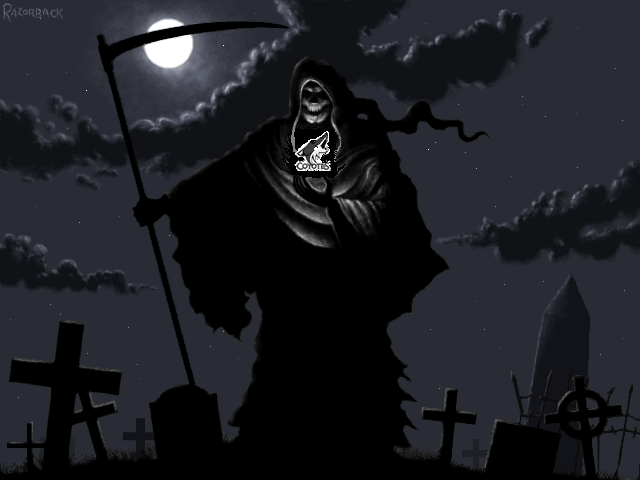Post by jhendrix70 on Sept 30, 2009 16:10:13 GMT -5
How did this happen? What sequence of events led to the departure of the Jets from Winnipeg, and contributed to much of the turmoil that has surrounded the team during its existence in Phoenix? It's been a long journey.
1972: The Winnipeg Jets are part of the start-up World Hockey Association, and make a big splash by signing Bobby Hull away from the Chicago Blackhawks. His $1 million signing bonus is unprecedented at the time. During the seven seasons that the WHA exists, the Jets are very successful - they make the final five times and win three AVCO Cup titles.
1979: The WHA folds, and the defending champion Jets are one of four teams absorbed by the National Hockey League (along with the Edmonton Oilers, Quebec Nordiques, and New England (Hartford) Whalers). The Jets' first NHL season is also the last for Hull, who only plays a handful of games. Morris Lukowich leads the team in their first season with 35 goals.
1981: Jets select Dale Hawerchuk with the first overall draft pick and he quickly becomes the face of the franchise. He plays nine seasons in Winnipeg, in which he wins the Calder Trophy and tops 100 points six times.
1984: Jets are swept out of the playoffs by the Edmonton Oilers. Playing in the tough Smythe Division, Winnipeg's success is held back by the rising dynasty of the Gretzky and Messier-led Oilers. Winnipeg would be eliminated from the post-season six times by Edmonton between 1983 and 1990.
1991: Hawerchuk is traded to the Buffalo Sabres. Winnipeg uses one of the draft picks that they receive in the deal to select Keith Tkachuk.
1992-93: Teemu Selanne breaks Mike Bossy's rookie records by scoring 76 goals and 132 points. He easily wins the Calder Trophy.
1994-95: The first seeds of doubt are planted about a possible move of the team from Winnipeg. During the four-month lockout that season, the Manitoba Entertainment Complex (MEC) says that they will not exercise their option to purchase the team from owner Barry Shenkarow and keep them in Winnipeg.
1995: Shenkarow fails to sell the team to an ownership group in Minnesota, and announces that the team will remain in Winnipeg for one more season. During a press conference to announce the imminent departure of the Jets on May 3, Manitoba Premier Gary Filmon sums up the economics of the situation by saying, "The continuing escalation of salary costs and the lack of a firm commitment to revenue sharing in the NHL does not allow NHL hockey to be viable in Winnipeg."
1995: Gary Bettman, then in his third year as NHL commissioner, says in a statement on May 3, "We regret that the Jets appear to be leaving Winnipeg. The fans of the Winnipeg Jets have been loyal throughout the team's 16 seasons in the NHL. We have exhausted every avenue in the hopes that the Jets could remain, but it appears that no one in the private sector believes, after extensive analysis, that a team in Winnipeg is economically viable."
1995: "Operation Grassroots" is launched by the Winnipeg community in an effort to save the team. On May 16, approximately 35,000 fans hold a rally to gather support for a new arena and to encourage local ownership groups to step up and buy the team. More than $250,000 is raised at the rally. Further fundraising efforts take place, but they prove insufficient.
1996: The team is sold to Richard Burke and Steven Gluckstern, who announce that they will move the team to Phoenix for the 1996-97 season. The team plays it's final game on April 28 in Winnipeg, when they are eliminated from the playoffs by the Detroit Red Wings.
The Phoenix Era
1996: The newly-named Phoenix Coyotes play their first game in Arizona and beat the San Jose Sharks 4-1 in front of a sold-out crowd at America West Arena. Keith Tkachuk scores 52 goals for the team that season, and the fans in Phoenix adopt the "Winnipeg White-out" when the team finishes third in the division to qualify for the playoffs. The Coyotes lose to Anaheim in the first round in seven games.
1998-99: Coyotes send four players to the All-Star game: Tkachuk, Jeremy Roenick, Teppo Numminen, and Nikolai Khabibulin. But in the first round of the playoffs against St. Louis, the Coyotes blow a 3-1 series lead and lose in seven.
2000-01: Financial troubles set in, and amid speculation that the team needs a new arena, they trade away Tkachuk, miss the playoffs, and lose Roenick as a free agent after the season. There is positive news, though: voters approve a new city-funded arena to be built in the Phoenix suburb of Glendale.
2003-04: Coyotes move into their new rink in Glendale. Attendance for the team, which had averaged just over 13,000 per game over the final two seasons in Phoenix, jumps to nearly 15,500 per game.
2005-06: Wayne Gretzky takes over as head coach following the NHL lockout. He also purchases an ownership stake in the team. With Gretzky behind the bench, Brett Hull signs with the club at age 41. Hull finds his game isn't up to his own standard and announces his retirement after just five games.
2008-09: The team finishes out of the post-season for the sixth straight year. Over their 12 seasons in Phoenix to date, the Coyotes were eliminated in the first round five times, and missed the playoffs seven times.
May 2009: Team owner Jerry Moyes files and places the Phoenix Coyotes under Chapter 11 bankruptcy protection. He has an offer from Research in Motion co-CEO Jim Balsillie to buy the team, contingent on the club moving to Hamilton.
Sept. 30, 2009: Judge Redfield T. Baum rejects Balsillie's bid to buy the team, and also rejects the ownership bid of the National Hockey League.
tsn.ca/nhl/teams/story/?id=293211&hubname=nhl-coyotes
1972: The Winnipeg Jets are part of the start-up World Hockey Association, and make a big splash by signing Bobby Hull away from the Chicago Blackhawks. His $1 million signing bonus is unprecedented at the time. During the seven seasons that the WHA exists, the Jets are very successful - they make the final five times and win three AVCO Cup titles.
1979: The WHA folds, and the defending champion Jets are one of four teams absorbed by the National Hockey League (along with the Edmonton Oilers, Quebec Nordiques, and New England (Hartford) Whalers). The Jets' first NHL season is also the last for Hull, who only plays a handful of games. Morris Lukowich leads the team in their first season with 35 goals.
1981: Jets select Dale Hawerchuk with the first overall draft pick and he quickly becomes the face of the franchise. He plays nine seasons in Winnipeg, in which he wins the Calder Trophy and tops 100 points six times.
1984: Jets are swept out of the playoffs by the Edmonton Oilers. Playing in the tough Smythe Division, Winnipeg's success is held back by the rising dynasty of the Gretzky and Messier-led Oilers. Winnipeg would be eliminated from the post-season six times by Edmonton between 1983 and 1990.
1991: Hawerchuk is traded to the Buffalo Sabres. Winnipeg uses one of the draft picks that they receive in the deal to select Keith Tkachuk.
1992-93: Teemu Selanne breaks Mike Bossy's rookie records by scoring 76 goals and 132 points. He easily wins the Calder Trophy.
1994-95: The first seeds of doubt are planted about a possible move of the team from Winnipeg. During the four-month lockout that season, the Manitoba Entertainment Complex (MEC) says that they will not exercise their option to purchase the team from owner Barry Shenkarow and keep them in Winnipeg.
1995: Shenkarow fails to sell the team to an ownership group in Minnesota, and announces that the team will remain in Winnipeg for one more season. During a press conference to announce the imminent departure of the Jets on May 3, Manitoba Premier Gary Filmon sums up the economics of the situation by saying, "The continuing escalation of salary costs and the lack of a firm commitment to revenue sharing in the NHL does not allow NHL hockey to be viable in Winnipeg."
1995: Gary Bettman, then in his third year as NHL commissioner, says in a statement on May 3, "We regret that the Jets appear to be leaving Winnipeg. The fans of the Winnipeg Jets have been loyal throughout the team's 16 seasons in the NHL. We have exhausted every avenue in the hopes that the Jets could remain, but it appears that no one in the private sector believes, after extensive analysis, that a team in Winnipeg is economically viable."
1995: "Operation Grassroots" is launched by the Winnipeg community in an effort to save the team. On May 16, approximately 35,000 fans hold a rally to gather support for a new arena and to encourage local ownership groups to step up and buy the team. More than $250,000 is raised at the rally. Further fundraising efforts take place, but they prove insufficient.
1996: The team is sold to Richard Burke and Steven Gluckstern, who announce that they will move the team to Phoenix for the 1996-97 season. The team plays it's final game on April 28 in Winnipeg, when they are eliminated from the playoffs by the Detroit Red Wings.
The Phoenix Era
1996: The newly-named Phoenix Coyotes play their first game in Arizona and beat the San Jose Sharks 4-1 in front of a sold-out crowd at America West Arena. Keith Tkachuk scores 52 goals for the team that season, and the fans in Phoenix adopt the "Winnipeg White-out" when the team finishes third in the division to qualify for the playoffs. The Coyotes lose to Anaheim in the first round in seven games.
1998-99: Coyotes send four players to the All-Star game: Tkachuk, Jeremy Roenick, Teppo Numminen, and Nikolai Khabibulin. But in the first round of the playoffs against St. Louis, the Coyotes blow a 3-1 series lead and lose in seven.
2000-01: Financial troubles set in, and amid speculation that the team needs a new arena, they trade away Tkachuk, miss the playoffs, and lose Roenick as a free agent after the season. There is positive news, though: voters approve a new city-funded arena to be built in the Phoenix suburb of Glendale.
2003-04: Coyotes move into their new rink in Glendale. Attendance for the team, which had averaged just over 13,000 per game over the final two seasons in Phoenix, jumps to nearly 15,500 per game.
2005-06: Wayne Gretzky takes over as head coach following the NHL lockout. He also purchases an ownership stake in the team. With Gretzky behind the bench, Brett Hull signs with the club at age 41. Hull finds his game isn't up to his own standard and announces his retirement after just five games.
2008-09: The team finishes out of the post-season for the sixth straight year. Over their 12 seasons in Phoenix to date, the Coyotes were eliminated in the first round five times, and missed the playoffs seven times.
May 2009: Team owner Jerry Moyes files and places the Phoenix Coyotes under Chapter 11 bankruptcy protection. He has an offer from Research in Motion co-CEO Jim Balsillie to buy the team, contingent on the club moving to Hamilton.
Sept. 30, 2009: Judge Redfield T. Baum rejects Balsillie's bid to buy the team, and also rejects the ownership bid of the National Hockey League.
tsn.ca/nhl/teams/story/?id=293211&hubname=nhl-coyotes







